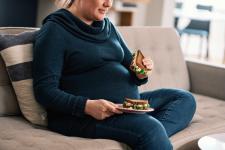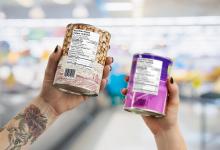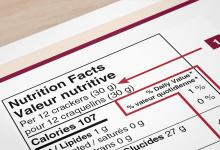Healthy eating and taking a multivitamin plays a very important role for you and your baby during pregnancy and breastfeeding.
On this page
Why healthy eating matters
What you eat and drink during your pregnancy can support a healthy pregnancy.
Healthy eating can help:
- your baby’s healthy growth and development
- you get the vitamins, minerals and nutrients you need
Healthy eating habits
It is very important to have healthy eating habits while you are pregnant or breastfeeding.
Eat a variety of healthy foods each day
Vegetables and fruits, whole grain foods and protein foods:
- are all part of healthy eating during pregnancy
- contribute to the nutritional health of you and your baby
Every day, choose a variety of:
- vegetables and fruit, including:
- dark green vegetables such as kale and bok choy each day
- orange vegetables such as carrots and sweet potato most days
- whole grain foods, such as:
- oats
- wild rice
- whole wheat pasta
- protein foods such as:
- eggs
- nuts and seeds
- fish and shellfish
- beans, peas, and lentils
- lean red meats, including wild game
- lower fat dairy products such as milk and yogurt
- fortified soy beverages, tofu, soybeans and other soy products
Eating a variety of healthy foods is the best way to help get the nutrients you need. Since vitamin D is found in very few foods, eat foods containing vitamin D or take a supplement with 400 IU (10 µg) of vitamin D every day.
You need just a little more food each day to:
- produce breast milk
- support the growth of your baby when pregnant
Choose foods that have little to no added:
- sodium
- sugars
- saturated fat
If you are not able to eat a variety of foods due to nausea or vomiting, speak to your health care provider.
Choose fish low in mercury
Fish can provide important nutrients that support a healthy pregnancy and breast milk production. However, some types of fish contain mercury, which can harm your baby’s brain development. Vary the types of fish you eat and follow advice from Health Canada to limit your exposure to mercury in fish. Check with your local, provincial or territorial government for any advisories on local fish.
Choose foods with healthy fats instead of saturated fat
You need more healthy fats like omega-3 fatty acids when you are pregnant. They support the growth of your baby’s brain and tissues. You can get healthy fats from foods like:
- nuts
- seeds
- fatty fish
- vegetable oils
Make healthy drink choices
It is important to drink plenty of water while you're pregnant.
Water can:
- keep you cool
- help control swelling
- help prevent constipation
- carry away waste products from you and your baby
- carry nutrients through your body and to your growing baby
Make water the easy choice by carrying a reusable water bottle.
White milk and unsweetened fortified plant-based beverages are also healthy drink options.
Be mindful
Being mindful of your eating habits is also important during pregnancy. It can help you make healthier food choices. Be mindful by:
- taking time to eat
- planning your meals and snacks
- decreasing distractions during meals
- including culture, food traditions and taste preferences
Take a daily multivitamin
You need more nutrients when you are pregnant. In addition to eating a variety of healthy foods, a multivitamin can help make sure you get enough of these nutrients, such as folate and iron.
You need a multivitamin with 0.4 mg folic acid everyday if you:
- are pregnant
- could become pregnant
Taking a multivitamin with 0.4 mg folic acid everyday can reduce the risk of your baby developing a neural tube defect.
While you are pregnant, make sure your daily multivitamin also contains 16 to 20 mg of iron.
The multivitamin you choose may also contain vitamin D, which can help you meet your vitamin D needs.
A health care provider can help you find the multivitamin that is right for you.
Food safety during pregnancy
You are at higher risk of food poisoning when you are pregnant. Food poisoning can be dangerous to you and your developing baby.
Learn more about food safety and foods to avoid during pregnancy.
Weight gain during pregnancy
The pregnancy weight gain calculator will help you determine how much weight to gain for a healthy pregnancy.
Make a healthy choice
What you eat on a regular basis matters for your health.
- Choose foods that have little to no added sodium, sugars or saturated fat.
- Compare the nutrition facts table on foods to choose products that are lower in sodium, sugars or saturated fat.





